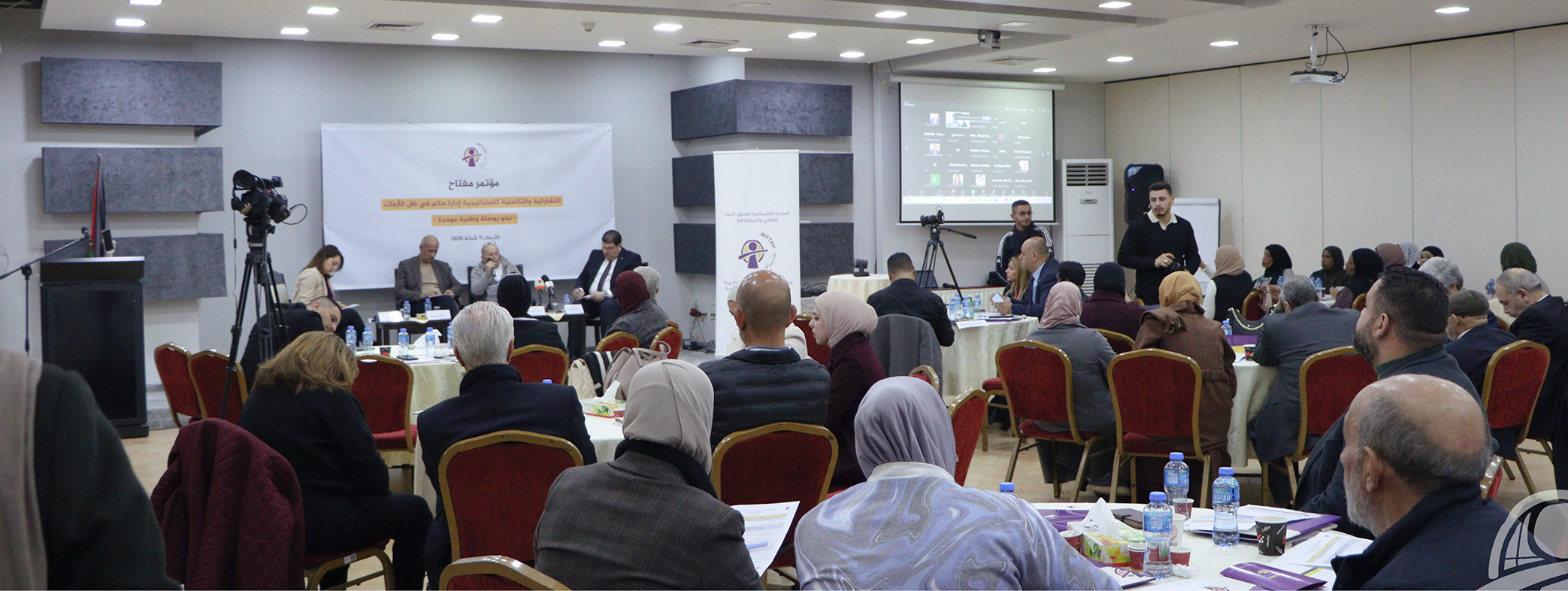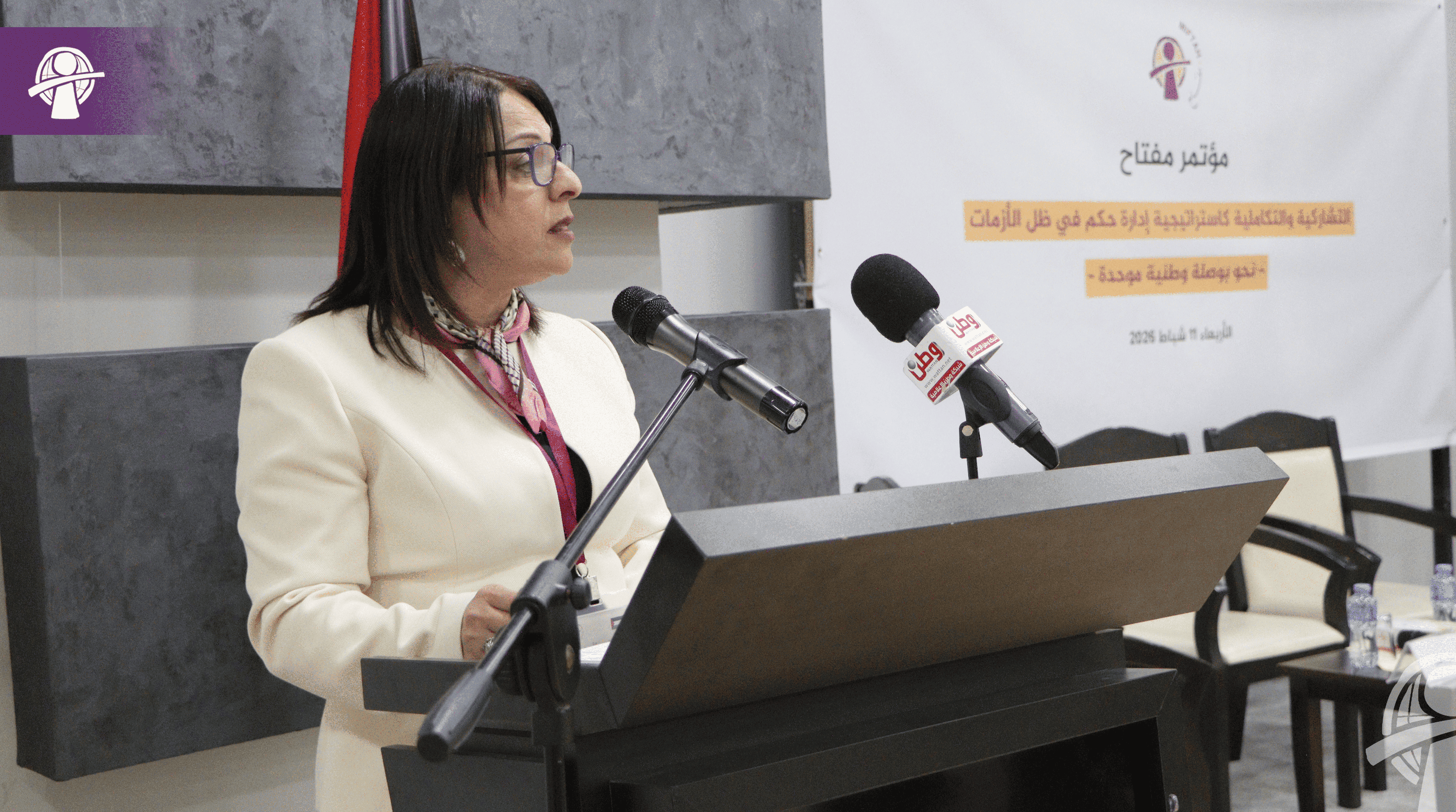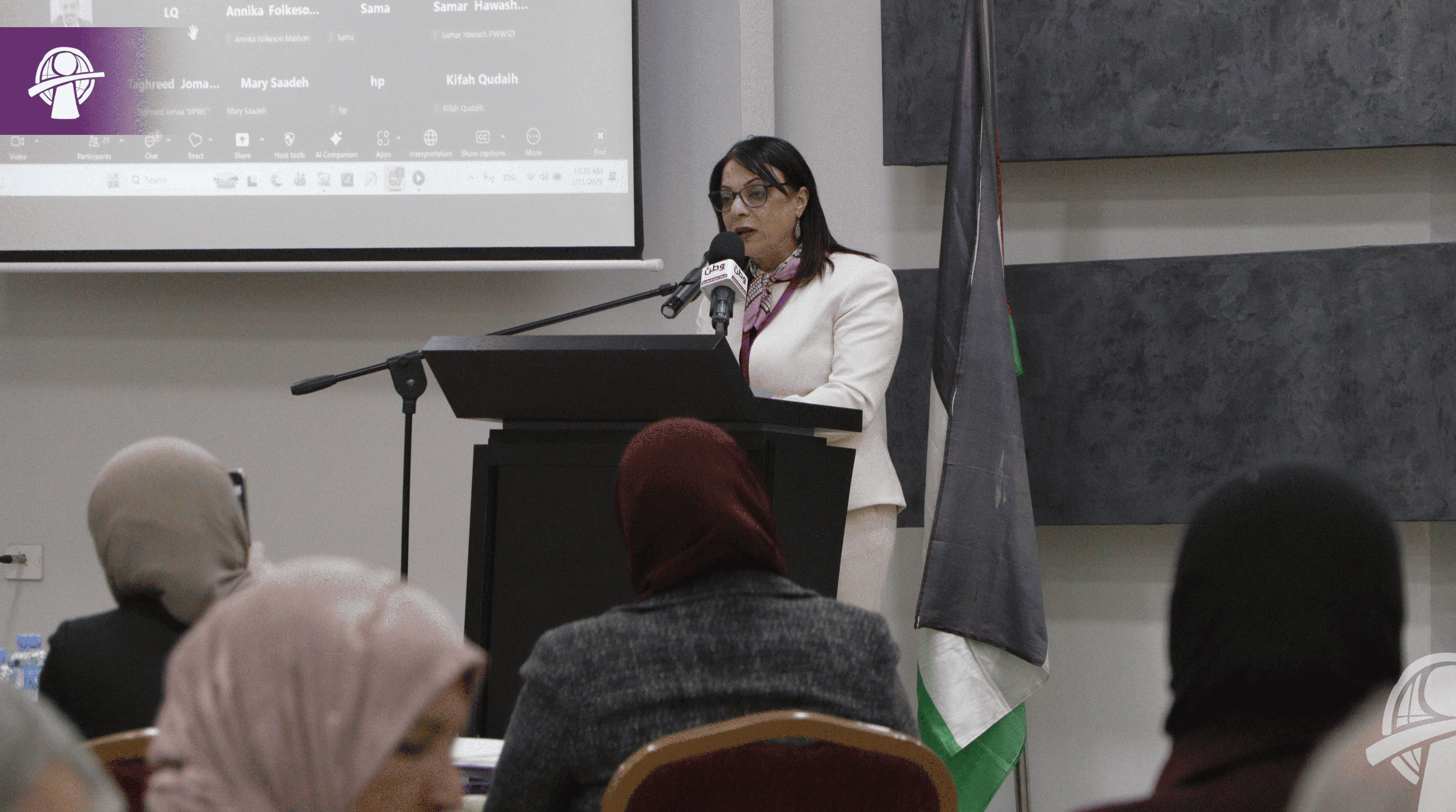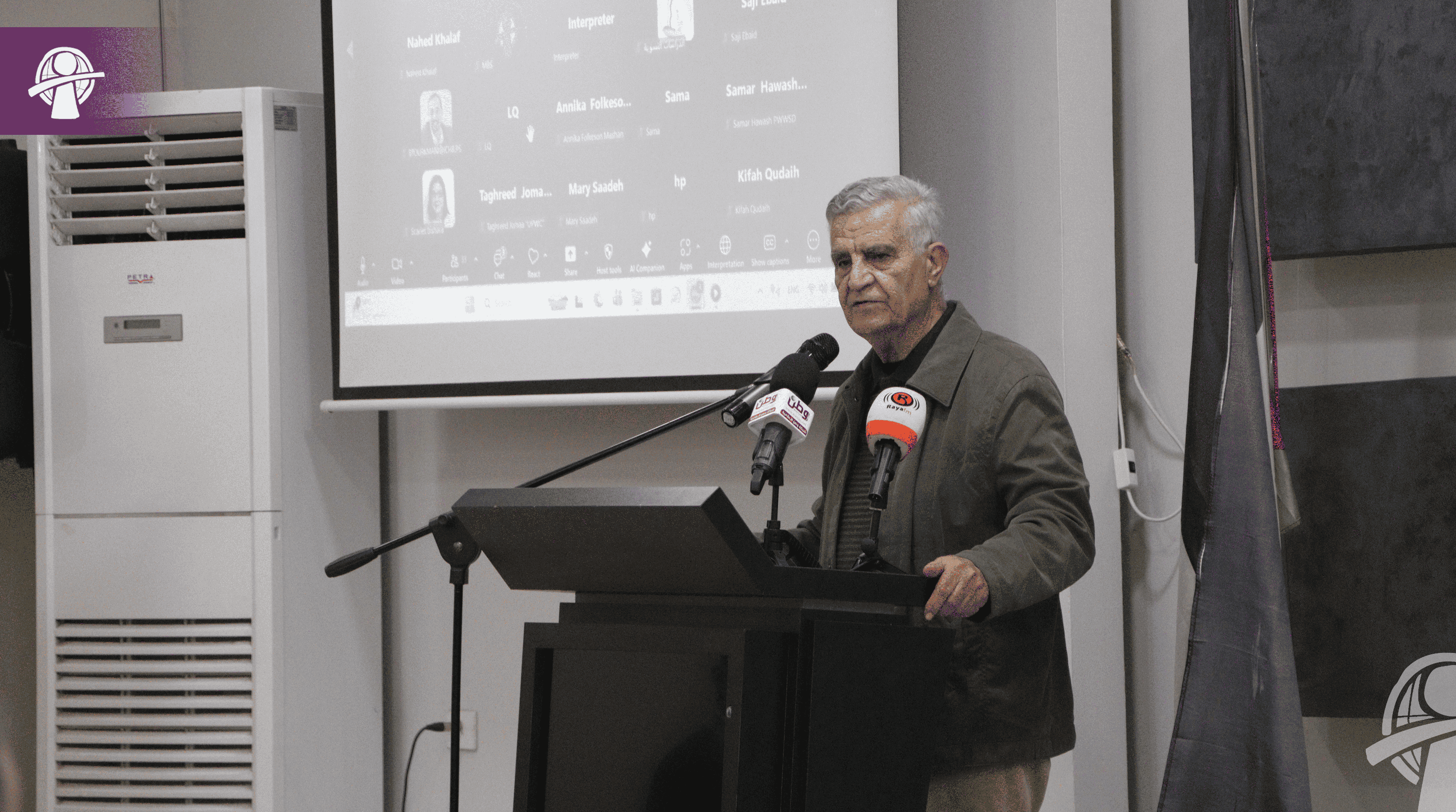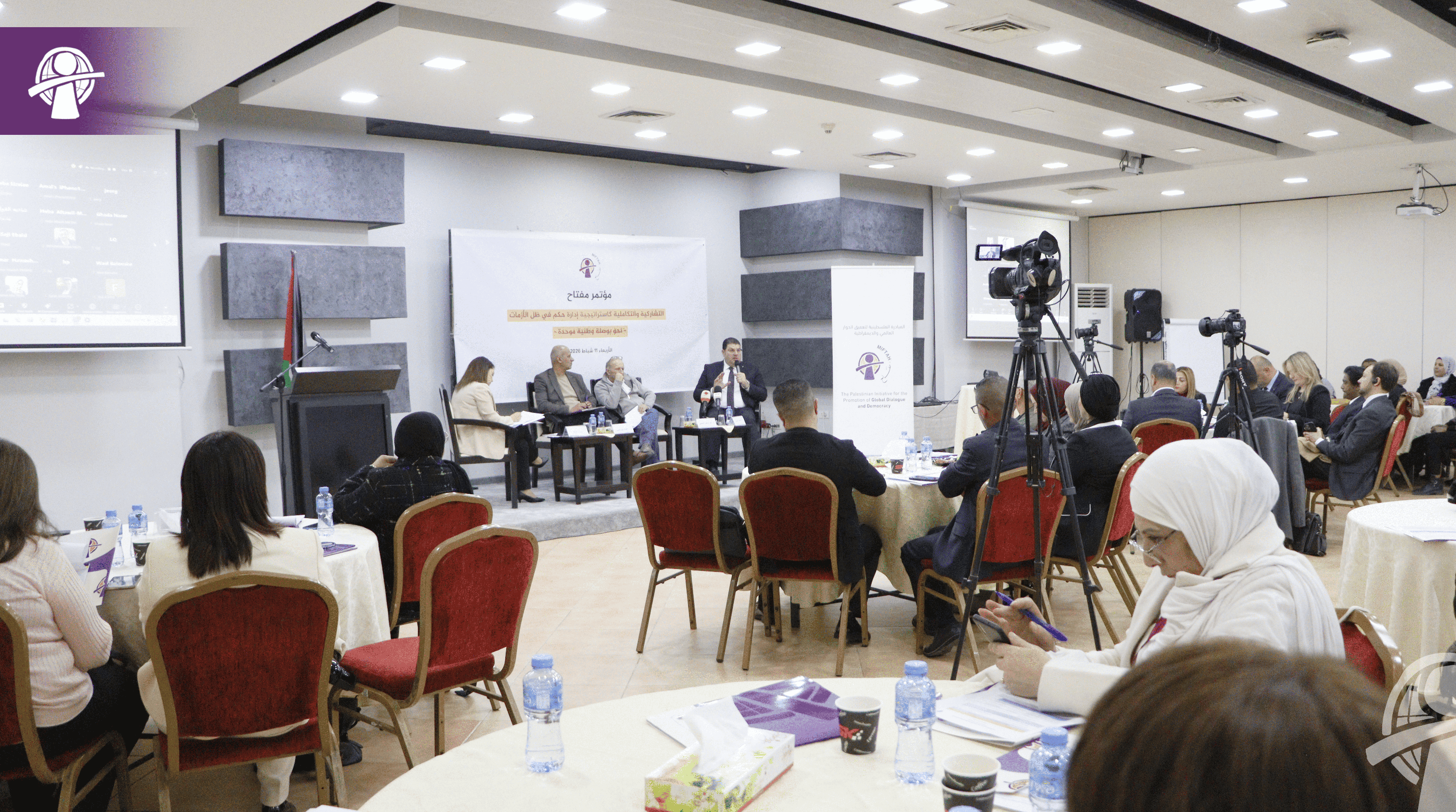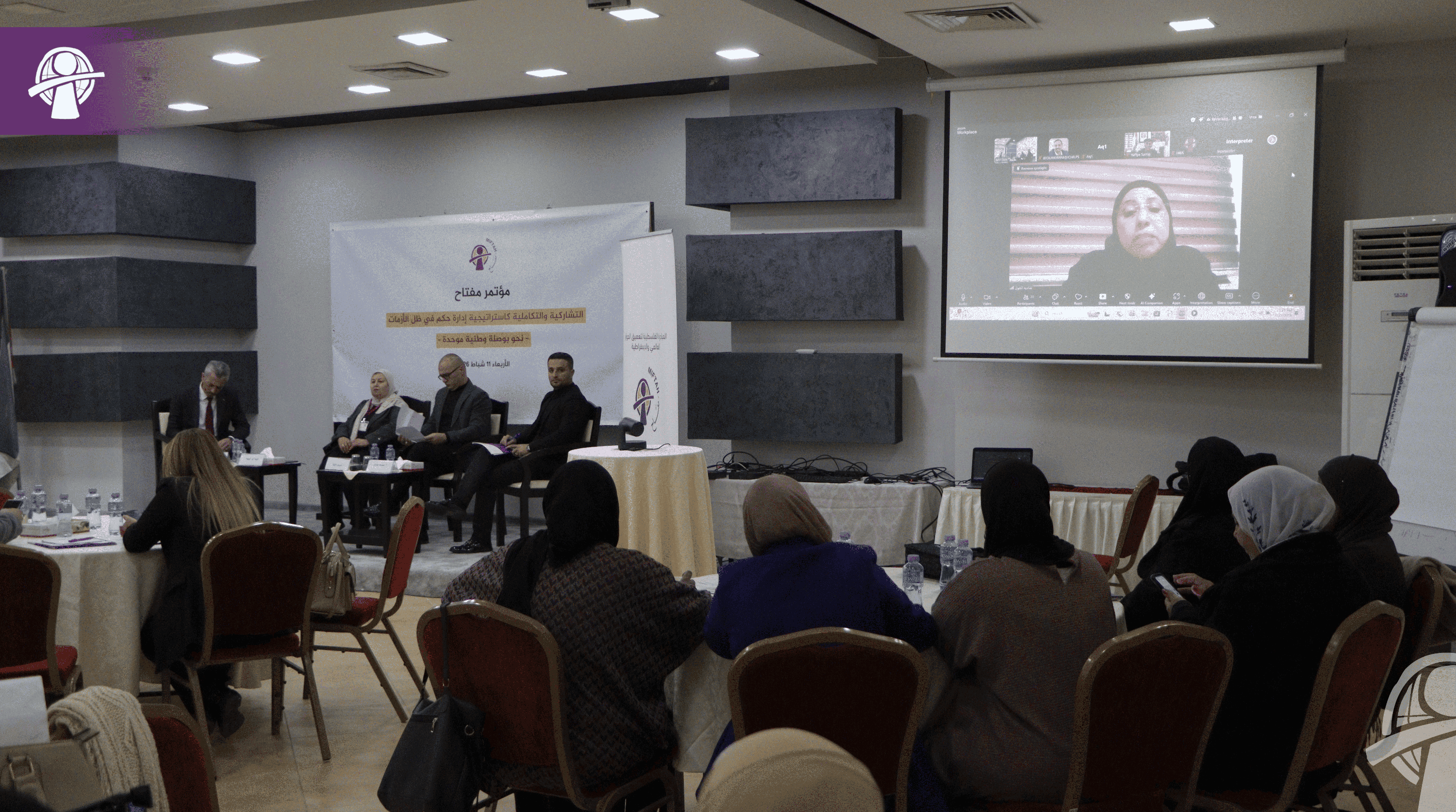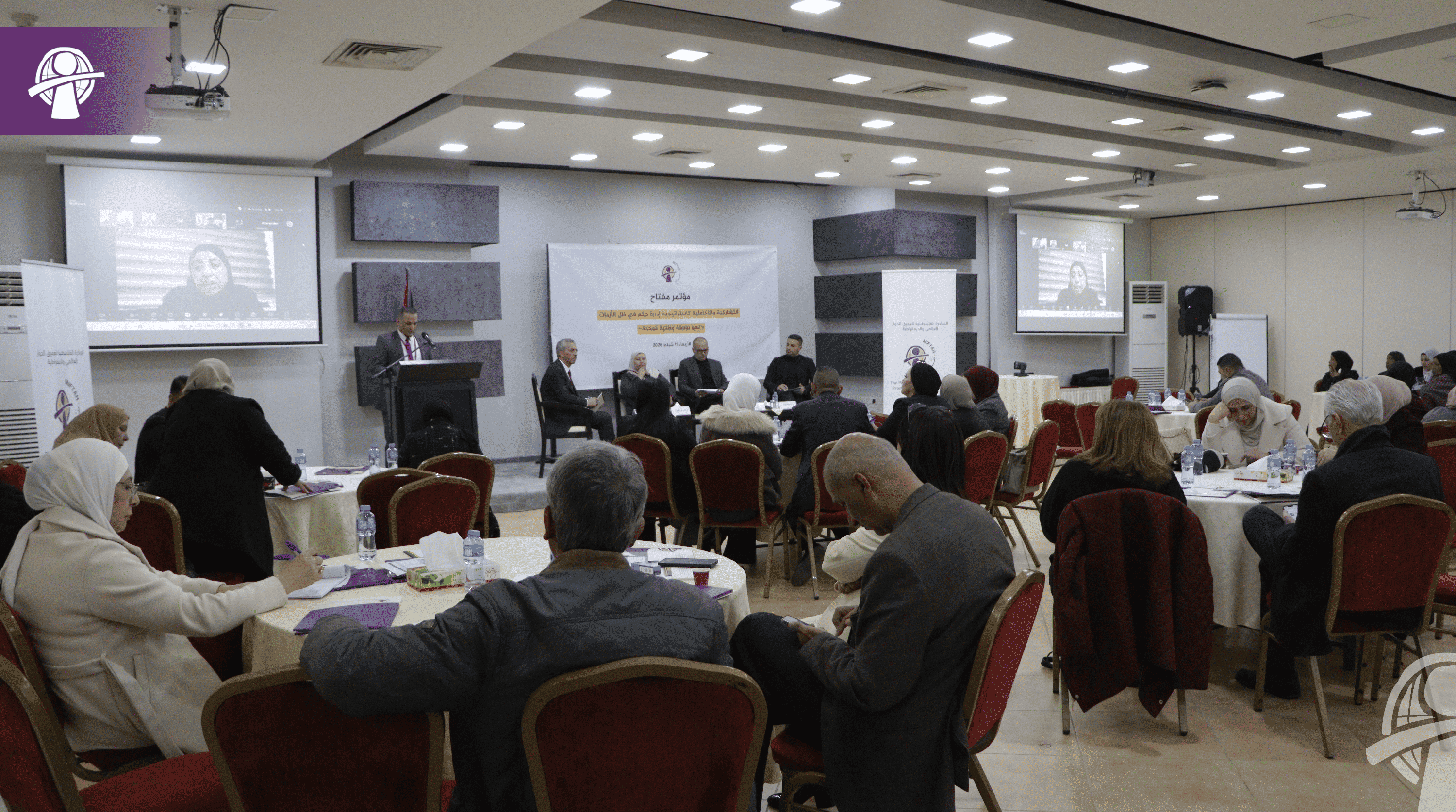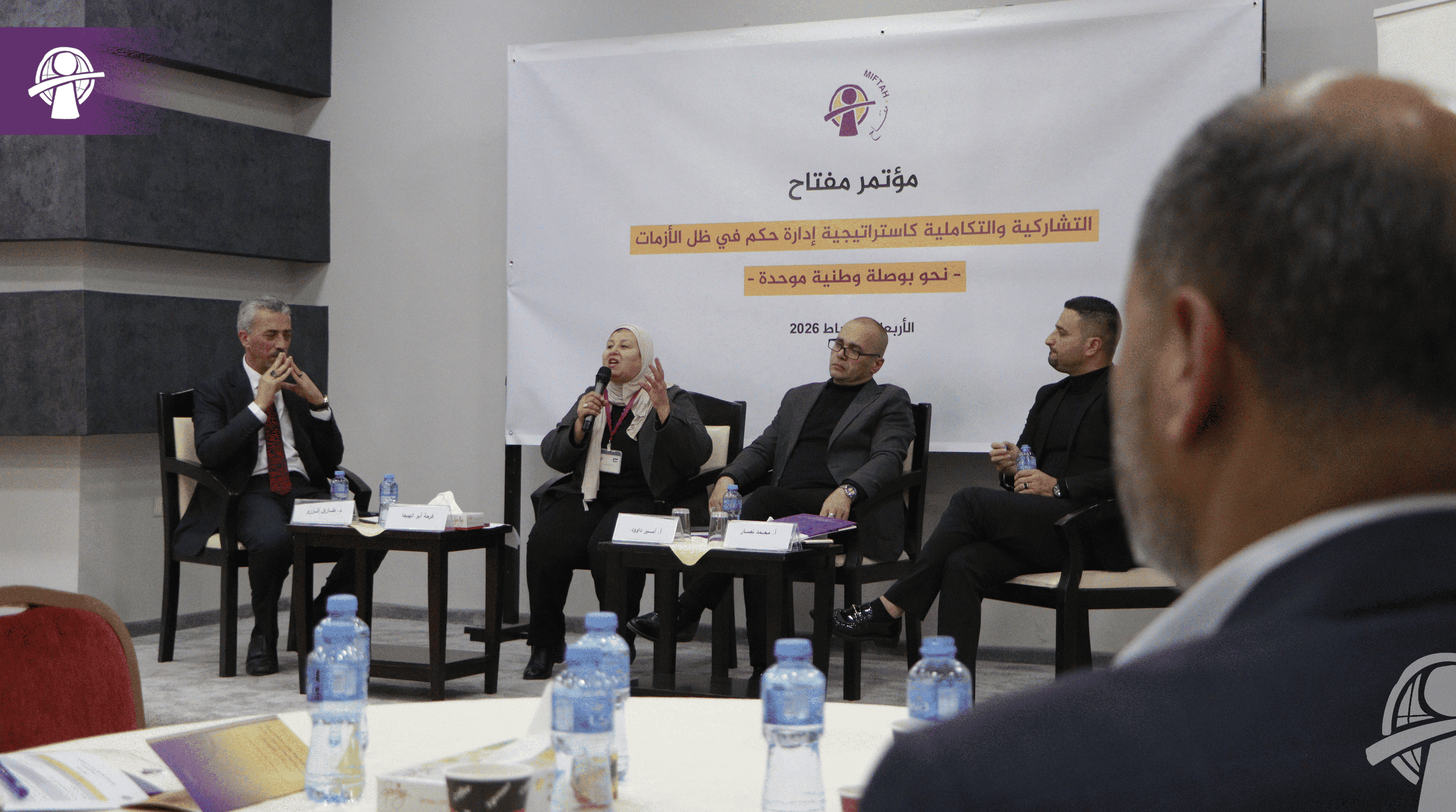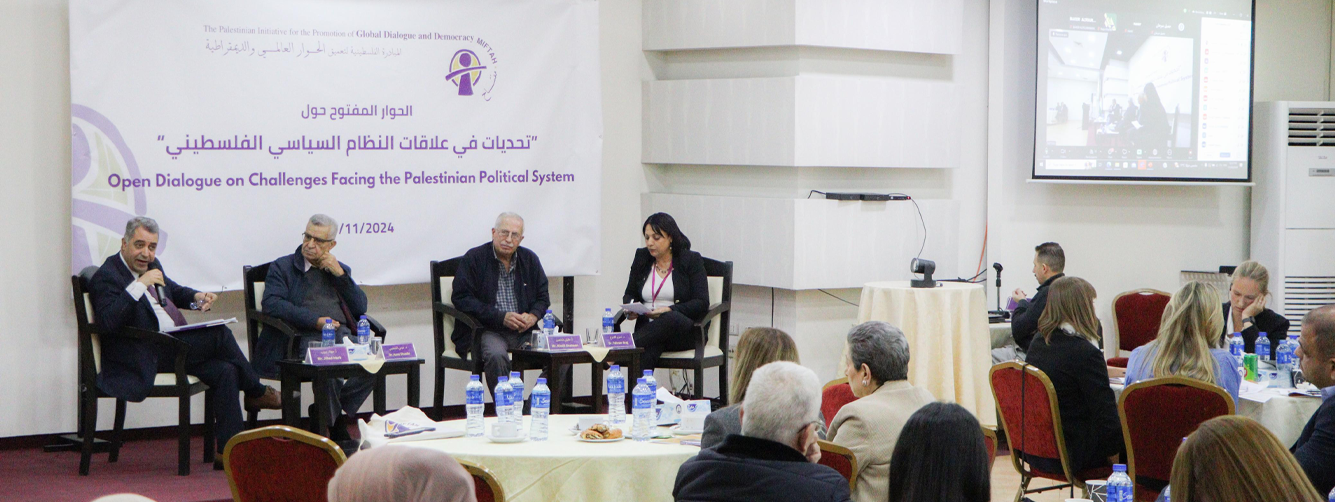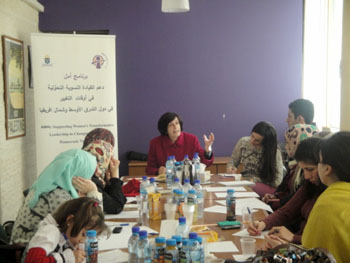
Ramallah – From now on, young leaders can have access to and benefit from the experiences of leaders who came before them in various political, social and cultural arenas.
This experience was made possible through a series of meetings held within the program “Supporting Women’s Transformative Leadership in Changing Times” , which brings together young leaders with more experienced leaders. The project is being carried out by OXFAM – Novib with funding from SIDA and in partnership with the Palestinian Initiative for the Promotion of Global Dialogue and Democracy (MIFTAH), the Women’s Affairs Center (WAC), the Women’s Center for Legal Aid and Counseling (WCLAC) and the Palestinian Working Women’s Society for Development (PWWSD).
MIFTAH’s program director Lamis Shuaibi said the goal of the meetings was to “create an atmosphere of dialogue that would bring together political leaders with youth leaders and provide an opportunity for them to listen and learn from the experience of Palestinian leaders in the political, social and development fields.”
Last week the first meeting of many to be carried out over the next two years, was held by MIFTAH and PWWSD. Fourteen young leaders distributed among four groups, participated. The groups represented four regions in the Jordan Valley (Fasayel, Jiftlik, Zbeidat and Ojah) and three Ramallah-area villages (Bilin, Nilin and Safa). The groups also comprised of students from four Palestinian universities and colleges (Birzeit University, Mustaqbal College, Palestine Technical College and Al Quds Open University). The meeting hosted FIDA Secretary General Zahira Kamal, who is also a women and political leader with a long and rich experience in politics and in the national struggle.
During the meeting, the young leaders answered questions and inquiries put to them by Kamal about the frustrations they face, which also impact their political participation and involvement in volunteer work. The youths spoke about the challenges of unemployment, poverty and the spread of nepotism, cronyism and corruption.
Some of the participants said they would not let the frustrations stand in their way. “I volunteered in the Jordan Valley and did not wait to be rewarded by anyone,” said Raed Abu Joudeh. “There is a strong sense of frustration among us, but our determination is even stronger. In this kind of work, I find myself.”
Tamara Tamimi said she has worked with a number of organizations and is currently a project coordinator for this project at the PWWSD. Tamimi spoke about the randomness and demagogic nature of the work in many institutions. Iman Romanin, another participant, made a related comment, saying she had taken many courses but had not benefited from any of them.
Two participants were at odds over volunteer work. Sheikha Ibrahim said she has volunteered with many organizations but that this does not solve the problem of unemployment. Rana Khattab, meanwhile, begged to differ, saying volunteer work, which she believes in, could be the perfect gateway for obliterating unemployment.
Hakam Karajeh, tackled the subject from another angle, saying that nepotism, cronyism and corruption were directly related to the spread of unemployment.
Qusay Nafe’ said university education is the “gateway to life” even though he hardly works in his own field. Still, he said volunteering in university activities or anti-wall protests had enriched his experience overall.
Aya Mansour was one of the more ambitious participants and said she wanted to shine in both the social and economic realms. She said her motto was: “Each one of us must make his/her own path.”
Sabeeha Abdallah maintained that while she would never hesitate in helping anyone and has actually volunteered in more than one place, this does not diminish the pressures on young Palestinians to work. The biggest challenge they face, she explained, comes from Israel and working in its West Bank settlements.
After listening to their concerns and viewpoints, Zahira Kamal gave the young participants a few words of advice. She spoke to them about the importance of gaining experience and never resorting to nepotism. Kamal reiterated the importance of volunteer work, saying it was crucial to gain experience before joining the work force and the career world.
As for tackling the problem of unemployment, Kamal suggested finding jobs in less conventional fields of work through researching the needs of the market. She focused on the importance of vocational education and working in crafts such as carpentry and tile-laying.
As for the place of women in political action, Hiba Awwad said the role of women in politics was an unnegotiable right. She continued that women’s participation in political life allows them to bring women’s issues to light and propose the right solutions for them. It also encourages other women to get involved.
Participant Sadeeqa Abu Salim counted off some of the more prominent issues facing women: “Social issues affect women directly along with political participation. There are then the issues of inheritance, so-called ‘honor’ killings, and economic pressures, along with issues such as equality, higher education, marriage, divorce and alimony.
In this context, Kamal cited the Tunisian and Moroccan experiences and how women in Tunisia succeeded in getting the signatures of a million women and mobilizing over 1,000 to pressure authorities into changing the family law. The president had no other choice but to heed their demands, in addition to giving his approval to the women’s quota law which is equal to men. Additionally, women were to be at the head of any list running in elections.
As for men’s role, the participants all agreed that the man’s role begins at home – how much support women get from within their families in issues related to jobs opportunities, supporting her in running and voting in elections, participating in decision making and exercising pioneer and leadership roles in issues related to herself and to society.
The young participants were inspired by the experiences recounted by Zahira Kamal, which included her struggles, challenges and achievements. Her story, to them, was a huge success, given that she is a prominent leader of a political faction and also became the PA Minister for Women’s Affairs.



